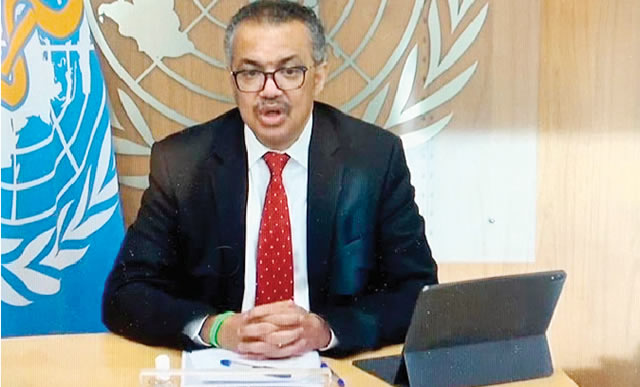
The WHO said data from various sources pointed to increased transmission last month, fuelled by gatherings over the Christmas holiday period and by the JN.1 variant, which is now the most commonly reported around the globe.
“Although COVID-19 is no longer a global health emergency, the virus is still circulating, changing and killing,” the UN health agency’s chief, Tedros Ghebreyesus, said.
Besides the near 10,000 deaths reported to the WHO last month, there was a 42 per cent increase in hospitalisations and a 62 per cent increase in intensive care unit admissions, compared with November.
However, the figures are based on data from less than 50 countries — mostly in Europe and the Americas, Tedros said.
“It is certain that there are also increases in other countries that are not being reported.
The WHO chief noted, “Just as governments and individuals take precautions against other diseases, we must all continue to take precautions against Covid-19.
“Although 10,000 deaths a month is far less than the peak of the pandemic, this level of preventable death is not acceptable.”
Tedros urged governments to maintain virus surveillance and sequencing and to ensure access to affordable and reliable tests, treatments and vaccines.
“And we continue to call on individuals to be vaccinated, to test, to wear masks where needed and to ensure crowded indoor spaces are well-ventilated,” he said.
Tedros declared an end to Covid-19 as an international public health emergency in May 2023, more than three years on from when the virus was first detected in Wuhan, China, in late 2019.
AFP










